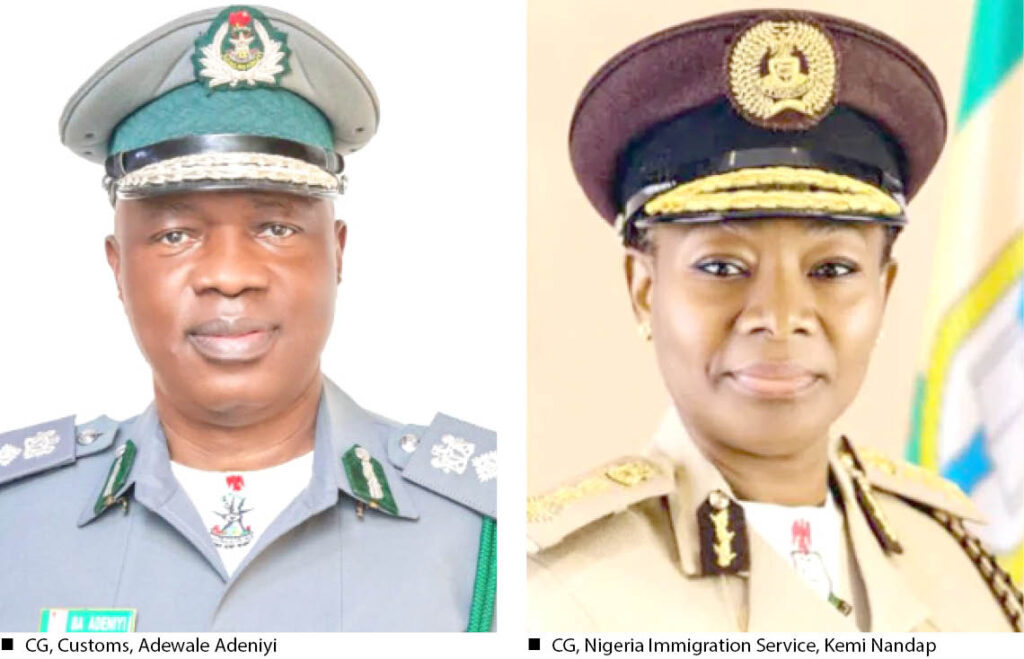
Personnel from the Nigeria Customs Service (NCS) and Nigeria Immigration Service (NIS) stationed at Nigeria’s land borders have voiced their frustration over the non-payment of allowances for over two and a half years.
These officers, some deployed for more than five years, are enduring harsh working conditions, a situation they describe as demoralizing and highly unusual.
The former National Security Adviser (NSA), Major General Babagana Monguno (Rtd), highlighted in 2021 that Nigeria’s porous borders posed significant challenges, contributing to smuggling, irregular migration, and other organized crimes. His statement came shortly after the formation of the Joint Border Patrol, aimed at addressing these issues. Monguno emphasized the need for better border management, stressing that both NCS and NIS had developed strategies involving the use of technology to bolster security.
Speaking anonymously to the BBC Hausa Service, one border security operative revealed the dire state of affairs. He noted that while they were initially paid on time, the situation deteriorated during the final months of President Buhari’s administration, leaving them without allowances for 30 months. The officer expressed concern that extended deployments beyond two and a half years, combined with the unpaid allowances, were contributing to worsening morale. He also warned that such conditions could push some personnel to compromise security efforts, despite their commitment to serving the country.
The officer also described the dangers faced by border patrol officers, mentioning kidnappings and killings by bandits as they work in high-risk areas. He appealed to the authorities for immediate payment of their overdue allowances, noting that while soldiers stationed in conflict zones like Maiduguri receive their payments, border personnel remain unpaid despite facing similar dangers.
In response, customs spokesman Abdullahi Maiwada acknowledged the issue and stated that the service is reviewing the process. He explained that the Joint Border Patrol Team, established in 2019, was initially a collaborative effort involving the police, military, immigration, and customs. However, following a review, responsibility shifted to immigration and customs, as their roles align with the movement of goods and people across the borders. Maiwada assured that the ongoing review would address the current challenges faced by the personnel.
Efforts to obtain a comment from the NIS were unsuccessful. However, a source within the NSA’s office clarified that the border patrol arrangement was initially ad hoc, intended to meet specific goals. He noted that customs and immigration personnel are responsible for managing border security, as this falls within their primary duties.
The source also addressed concerns raised by the border officer, stating that officials assigned to such duties should not view them as special assignments but rather as part of their core responsibilities. A formal response from the relevant authorities is expected soon.